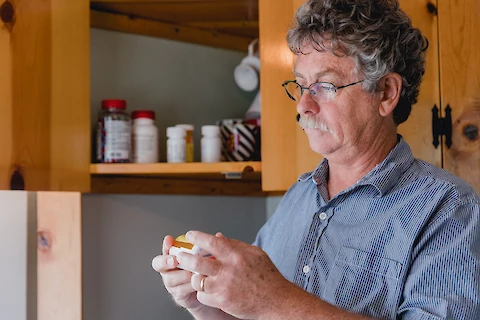
When caring for a senior loved one, an important topic that's not always on everyone's radar involves the effects of high temperatures on medications. Extreme temperatures potentially impact prescription drugs, over-the-counter medicines, and supplements, altering their effectiveness and even causing unwanted side effects. This post serves as a guide for family caregivers on how high temperatures affect different types of medicine and how to protect medication from heat.
Understanding the Effects of High Temperatures on Medications
Heat and medication don't mix well. Extreme temperatures may destabilize certain medications, causing them to lose potency. Some might degrade into compounds that might cause harm or, at the very least, render them ineffective. It's a bit like leaving milk out in the sun. Exposure to heat significantly reduces its quality.
Specific Effects on Different Types of Medications
Heat causes different damaging effects depending on the medicine. Prescription drugs, for example, are typically more susceptible to temperature changes, with several known to degrade rapidly in the heat, including insulin and certain antibiotics. Over-the-counter medicines also become damaged with heat exposure. Allergy medicines, for instance, lose efficacy when exposed to high temperatures. Supplements may also become ineffective, with some, like probiotics, potentially carrying adverse effects if degraded.
Practical Tips for Proper Storage and Handling of Medications
With the potential harm of medication mismanagement, it pays to know how to store and protect them from the effects of high temperatures. Many tend to keep their drugs in the bathroom medicine cabinet, not realizing that the humidity from hot showers may pose a risk. Instead, consider storing medications in a dry, cool place away from direct sunlight. A climate-controlled room or a dedicated storage box might serve as a better storage option. Keeping the medication at a constant temperature, away from heat and moisture, is vital.
Also, keeping track of the expiration date is crucial, as heat-exposed medications might become ineffective quicker. Consider keeping a notebook of when the medication first got exposed to heat or left in your climate-controlled storage.
Role of Caregivers in Medication Management
As caregivers, we're responsible for the well-being of our loved ones. Ensuring the effectiveness and safety of their medication represents a task of utmost importance. Awareness of how high temperatures affect your senior loved one's medications puts you one step ahead in ensuring their health isn't compromised. It's not always easy, but with accurate knowledge, you will navigate this challenge effectively.
Senior Helpers Greenwood-Aiken Can Help
Being aware of the effects of high temperatures on medications and how to protect them from exposure to heat is a critical part of your responsibility as a caregiver. If you're in Aiken, Greenwood, North Augusta, Newberry, or Leesville and need a helping hand, remember that we at Senior Helpers Greenwood-Aiken are just a call away. Please don't hesitate to contact us today. We'd be happy to discuss our many services for seniors and their caregivers.